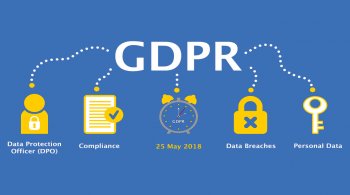

GDPR or General Data Protection Regulation is a data privacy law set out by the European Union. The law was enforced on May 25th, 2018, to provide European citizens with more control over their personal data. This data privacy law was designed to make the regulatory environment simple, both for citizens and businesses.
Since data breaches are on the rise all across Europe, by this law, authorities have made it obligatory for organisations to ensure that they’re gathering personal data from their users/customers under strict conditions. Businesses that collect and manage personal data from online users are obliged to prevent that data from exploitation and misuse. Organisations that violate this law can face fines and notices as per the GDPR law.
Let’s take a look at the requirements to be GDPR compliant.
Every business owner or service provider that use the personal data of customers for any purpose are required to have a definite term of consent. They shouldn’t confuse their users with complex language.
If a security breach happens, you have 72 hours to report the same to your customers as well as data controllers. If you have a big organisation, you need to have a GDPR data controller. Failure to report the data breach within this timeframe will cause a hefty fine.
You should be able to provide your users with a complete, free electronic copy of the data you have gathered from them. If a user requests, you will also need to mention the various ways you’re using their information in the same report.
Your customer can request you to erase their data once the original purpose of the data has been realized.
The GDPR law gives users rights to their own data. They can get their data from you and decline that data in various environments outside of your company.
This section of GDPR needs businesses to implement the proper security protocols in place to ensure data safety. Failure to this might lead to a huge fine.
In some scenarios, your company might need to employ a DPO (data protection officer) depending on the size of your company and what level of personal data you collect. A few scenarios where you need to appoint a DPO include:
As we mentioned above, failure to comply with GDPR can lead to hefty fines. The fine can range from €20million up to 4% of the offending company’s yearly revenue – whichever is greater. Since it’s a huge fine, you must ensure that your business complies with GDPR.
If you don’t want the burden of data protection compliance or don’t have the internal staff to manage it, you may outsource your GDPR compliance process. We hope this post gives you adequate knowledge on the GDPR.